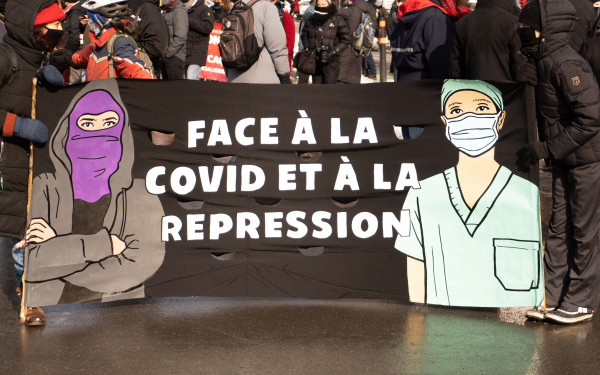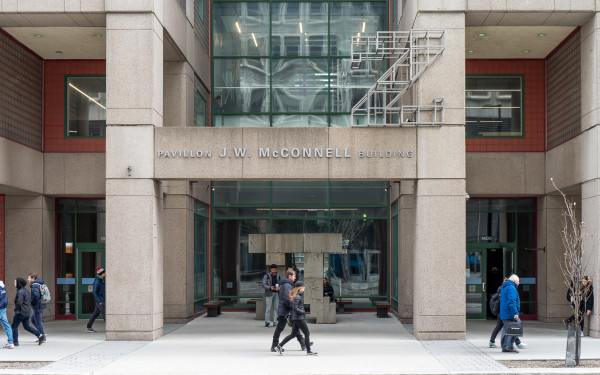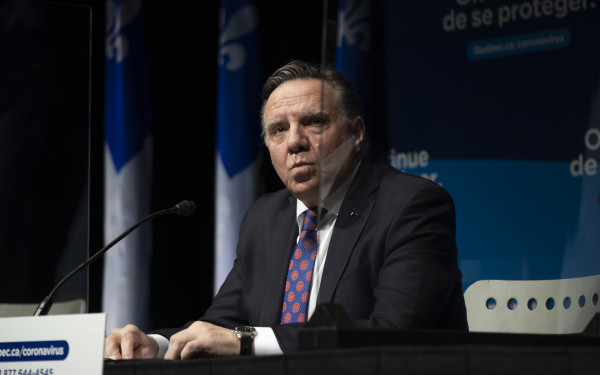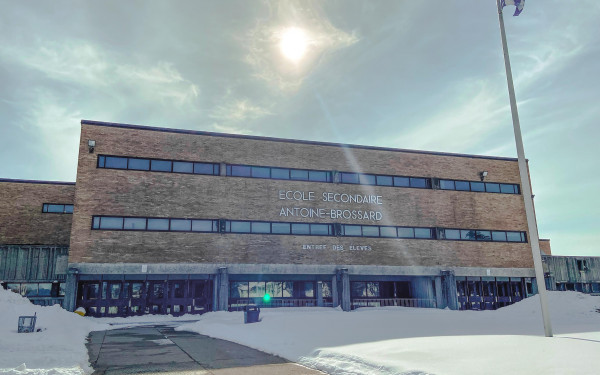Is Quebec’s De-radicalization Centre Fit For Purpose?
Preventative Hotline is a Shallow Solution to a Deeper Problem
The abhorrent feats of cruelty and violence that have transpired across the globe in the past year have left the world in awe.
But what has left us even more incredulous is the fact that people from within our own society have decided to abandon the comforts of home to fight alongside medieval-minded, religious zealots. Montreal’s municipal authority has taken it upon itself to stop radicalization in its tracks, but will Mayor Denis Coderre’s radicalization “prevention centre” be able to serve its intended purpose?
For now, the centre itself is still in the works. In its place is a hotline that folks may use to inform the powers-that-be of anyone who they suspect might become radicalized. The whole thing reeks of the anti-communist, whistleblowing McCarthy era of the mid-20th century.
Once the centre is up and running, it is intended to “prevent and detect” local radicals preparing to act on their convictions. Montreal police chief Marc Parent has described it as a “reference and expertise hub” that will help law enforcement deal with the issue.
Dr. André Gagné, a Concordia professor from the Department of Theological Studies who has researched the radicalization process, is not entirely convinced of its usefulness. “It’s going to have to expand into something more, because now at the moment it’s only going to serve as a way to denounce people,” he said. “You can tell the authorities that you think there’s a danger, but you’re just dealing with authorities. You’re not dealing with the issue, which is radicalization.”
Despite obvious criticisms one may have against this flimsy anti-terrorism measure, it didn’t come about without adequate provocation.
Canada has experienced its fair share of radicalization over the past year. Those who have been influenced by an ethos embodied by Islamic State have scarred our so-called peacekeeping nation.
Petty criminal and addict, Michael Zehaf-Bibeau, attacked Parliament Hill. Martin Couture-Rouleau ran his car over two Canadian soldiers, right here in our own province. And most recently, as The Globe and Mail reported on March 20, at least seven young Quebec students ran off to join the brutal, conquering terror group.
“We are fighting against an ideology more than anything else.” – Dr. André Gagné, Concordia Department of Theological Studies
This phenomenon of radicalization is baffling, and it has come to a boiling point here in the early 21st century. It’s important that the authorities give it the attention it deserves, but the hotline is merely a pitiable attempt to bandage a stinking, festering wound. It might just serve to irritate it further.
“We are fighting against an ideology more than anything else,” Gagné said. “Of course politics mixes itself in that, but at the root, it’s ideology. It is a literalistic interpretation of Islam.
“[Extremists] have a particular way of understanding their ideology, which is really literalistic. They read the Qur’an, they read the Hadith as if they were in the 7th century. They are not taking into account the complexity of tradition and re-interpretation throughout time,” Gagné continued. “So we’re just brought back to the 7th century with this apocalyptic worldview.”
While I agree with the professor about the dangers of a literalistic interpretation of religion, he and I differ on one thing: the root cause, or causes of radicalization. Whereas some might see religious fundamentalism as the base for extremism, I see it as the final step. Violent ideas do not grow in the minds of stable, satisfied individuals. Anger and confusion must come first.
Groups like the Islamic State, while indeed fighting in the name of their interpretation of religion, also directly oppose the Western ideology and system. They serve to provide, for those who are most alienated from this society, an escape route.
For people who don’t think they can keep up in the never-ending rat race of capitalism, who in turn grow angry at the system that they are forced to participate in; for those who struggle to find identity, meaning and purpose in this society, a mental seed is planted.
Of course, in the vast majority of cases this seed never actually grows into violence. But, as history has proven, there are cases where alienation can lead to heinous acts.
“When you go through isolation, or you have questions or doubts about your own identity, or a sense of injustice, you’re going to look for answers,” Gagné said. “Religion will give you the black-and-white answers. And this is where you need education to discern that it’s not black and white, it’s grey.”
Anger, confusion, and a desperate search for purpose serve as the seed and religious fundamentalism acts as the water that makes the poisonous flower of radicalization grow. A profound sense of injustice also contributes to this perplexing phenomenon, according to Gagné. People are “seduced” by a radical ideology—a regrettable perversion of Islam—that often happens over the Internet. They allow themselves to become totally consumed by it.
“In some cases, people that are radicalized, they don’t even know much about their own tradition. They’re told! So they don’t discern if it’s actually correct,” Gagné said. “The right words at the right time caught [their] attention, and [they] got sucked in.”
So how can Montreal’s de-radicalization efforts possibly help solve such a deep-seated issue?
In cases where there is a vast amount of incriminating evidence, the hotline might be able to stop a few individuals from running off to war. But this does not address the underlying problem.
The centre itself, once up and running, will not adequately help either. Tossing people right into the system they directly oppose is counterproductive.
“We need to provide another narrative, we need to counterbalance with another narrative,” Gagné said.
The de-radicalization center will not provide “another narrative.” It will simply enforce the notion that the West craves control, which will only serve to add fuel to the fire.
Education is the best way to prevent radicalization, according to Dr. Gagné. Erasing the notion that the world is black and white is essential to the de-radicalization process. People who see the world as polarized, as good versus evil, are the ones who have within them the potential to act violently.
So far, the hotline is merely a temporary preventative measure. Extremism will not be terminated by a superficial organization that blatantly labels itself as an anti-radicalization “Prevention Centre.”
A question of such profound nature merits an answer of equal, if not greater depth.







